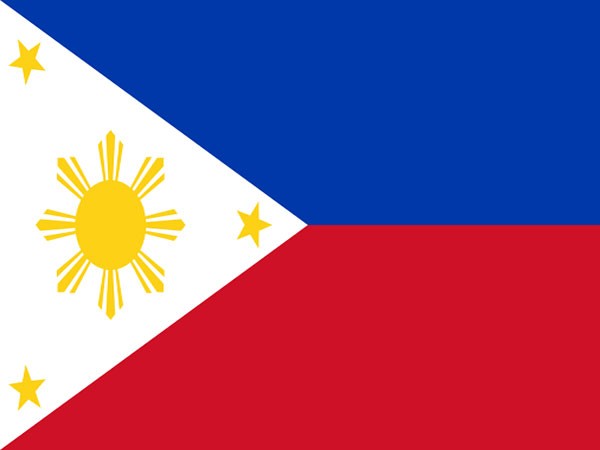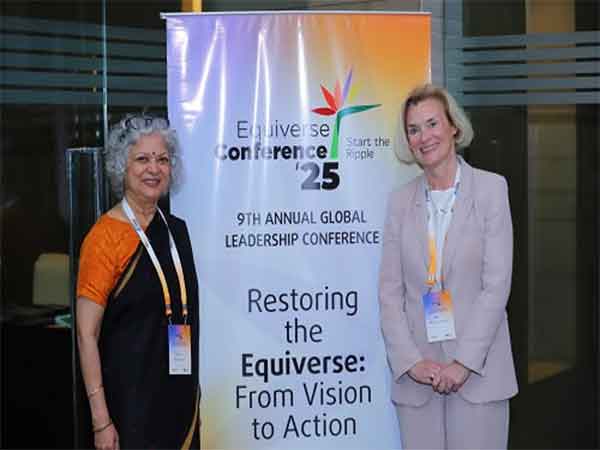
Philippines, communist rebel agree to resume peace talks
Nov 29, 2023
Manila [Philippines], November 29: The Philippine government and communist rebels said Tuesday they have agreed to resume peace talks to end one of the world's longest-running Maoist insurgencies. The ongoing armed struggle, launched in 1969, grew out of the global communist movement and found fertile soil for recruitment among the Philippines' rural poor.
At its peak in the 1980s, the group boasted about 26,000 fighters, a number the military says has now dwindled to less than 2,000. Successive Philippine administrations have held peace talks with the communists through their Netherlands-based political arm, the National Democratic Front (NDF).
This latest effort followed informal discussions in the Netherlands and Norway that began in 2022 and were facilitated by the Norwegian government, officials told reporters in Manila. "The parties agree to a principled and peaceful resolution of the armed conflict," said a joint statement issued by both sides that was signed in the Norwegian capital of Oslo on Nov 23. "The parties acknowledge the deep-rooted socioeconomic and political grievances and agree to come up with a framework that sets the priorities for the peace negotiation."
Philippine military chief General Romeo Brawner said the resumption of talks was "very good news for us". "If this conflict will finally end, your Armed Forces of the Philippines will be able to shift our focus to external or territorial defense," Brawner said. But until there was a "final agreement", he said the military would "continue our operations against the New People's Army", the armed wing of the Philippines' communist party.
The announcement comes almost a year after Jose Maria Sison, who launched the insurgency, died in self-imposed exile in the Netherlands. At the time, the Philippines' defense ministry said his death could finally lead to an end of violence in the country, calling Sison the "greatest stumbling block" to peace.
The last time peace talks were held was during the administration of former president Rodrigo Duterte - a self-declared socialist and a former student of Sison. But the talks devolved into threats and recrimination, with Duterte officially cutting them off in 2017, declaring the group a terrorist organization and accusing them of killing police and soldiers while negotiations were underway.
'Light at the end of the tunnel'
Sison's widow, Julieta de Lima, told a press conference in Utrecht on Tuesday that the NDF would appoint new members to its negotiating panel, which she heads. "The quest for genuine peace has no shortcuts," said de Lima. "It is very significant that the current president, who is the son of the late dictator Marcos, has acceded to the resumption of the peace negotiations, so I think that it would be to his own good that the armed conflict may be resolved during his term."
The talks would begin next year but the exact date and venue were still being discussed, the NDF said. "This is an important and timely step towards securing lasting peace in the Philippines," Norwegian Foreign Minister Espen Barth Eide said in a statement. He added in a separate post on X that "this gives hope for the people of" the Philippines.
GeorgiEngelbrecht, senior analyst for the Brussels-based peace monitor International Crisis Group, said the announcement was "a bit surprising but certainly welcome". He said it was the "light at the end of the tunnel", but cautioned that "the most hopeful initiative under Duterte failed years ago."
Tens of thousands of people have died in the insurgency launched during the first term of the late president Ferdinand Marcos, father and namesake of the current president. It was fueled by Marcos Sr's dictatorship when the legislature was shuttered, the free press muzzled and thousands of opponents tortured or killed.
In recent years, the Philippine government has claimed that hundreds of communist rebels have surrendered in exchange for financial assistance and livelihood opportunities. Deadly clashes still take place in parts of the country, which is also plagued by kidnap-for-ransom groups and Islamist secessionist movements in the southern region. A historic but fragile peace deal was reached with the country's largest Muslim rebel group, the Moro Islamic Liberation Front, in 2014. - AFP
Source: Kuwait Times






